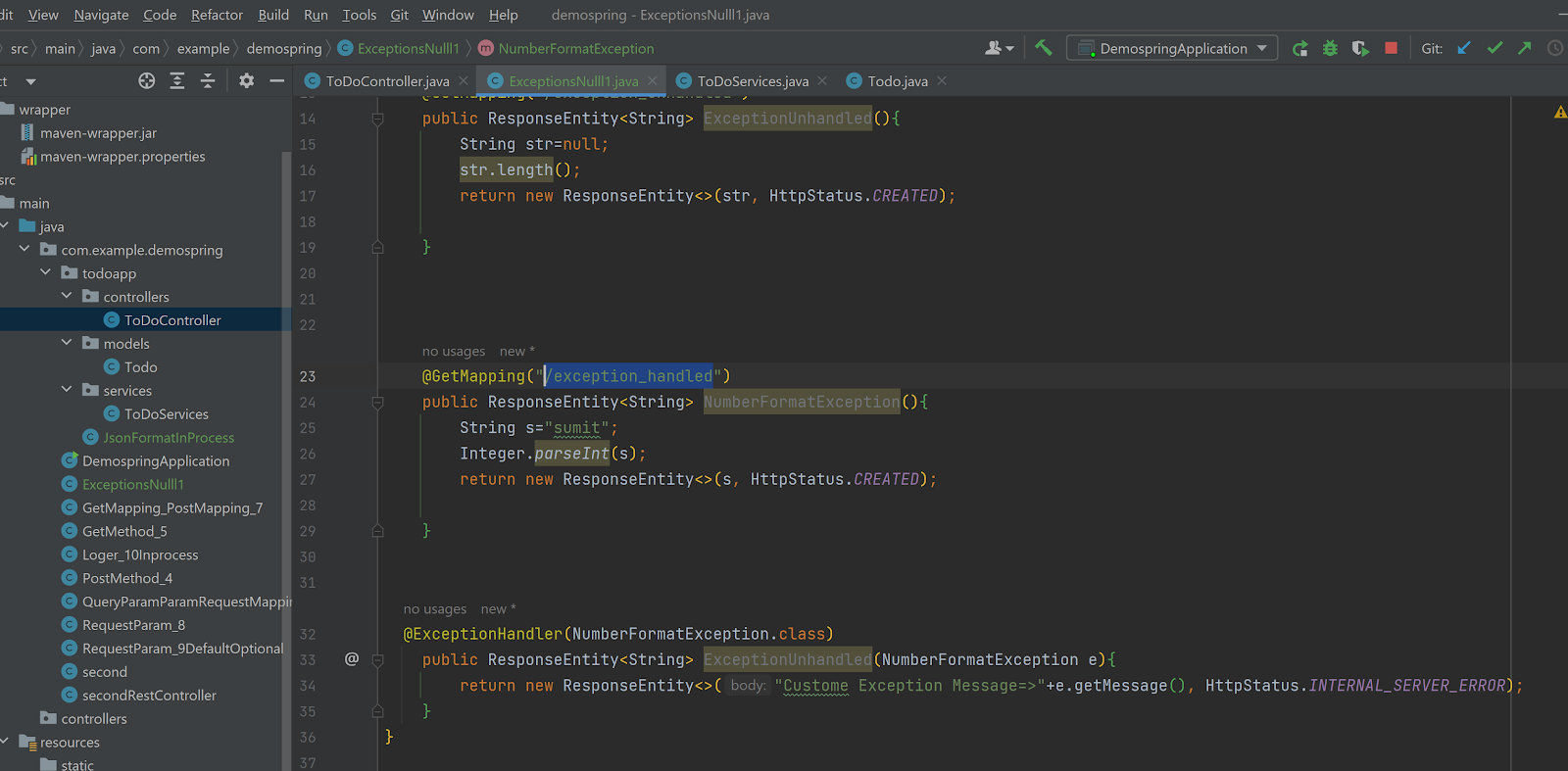package collectionInterface;
import java.util.ArrayList;
public class ArrayListDemo {
public static void main(String[] args) {
/*ArrayList
1. Best for item retrieval
2. Worst for inserting item in the middle. LinkedList best for middle insertion.
3. Implements Random Access Interface which allows any index access with same speed
4. NOT THREAD SAFE. Multiple threads can access simultaneously. With Collections class thread safety can be achieved
5. ArrayList<String> al=new ArrayList<String>();
Creates empty array list with default initial capacity 10
When arrayList reaches its maximum capacity new array list is created.Old elements are copied into it and references moved.
new capacity=(current capacity *3/2)+1
*/
ArrayList<String> al=new ArrayList<String>();
System.out.println(al.size()); //0 Physical Size 0 as no item added
System.out.println(al.isEmpty()); //true Since List is empty
System.out.println(al.add("first")); //true Will add item at 0 index as first item
System.out.println(al.isEmpty()); //false Since List is not empty now
System.out.println(al.size()); //1 Physical Size
al.add(1, "sagar"); // Add "sagar" at index 1
System.out.println(al.size()); //2 Since 2 items now with index 0 and 1
System.out.println(al); //[10, sagar]
al.add(1, "Sumit");
System.out.println(al); ; // [10, Sumit, sagar] Adding new element "Sumit" SHIFTS the list to right
/*
* Now list has two items (0,1) and we are trying to add value to index 3
* al.add(4,"test"); //Exception in thread "main"
* java.lang.IndexOutOfBoundsException: Index: 3, Size: 2
*
*/
/* Adding int data in String type arrayList will result in exception
System.out.println(al.add(10)); //Exception
The method add(int, String) in the type ArrayList<String> is not applicable for the arguments (int)
*/
System.out.println(al.contains("10")); //true
System.out.println(al.contains(8)); //false (No exception just warning when we use contains() for different data type)
System.out.println(al.indexOf("Sumit")); //1 first occurrence of "Sumit"
System.out.println(al.indexOf("sumit")); //-1
System.out.println(al.lastIndexOf("S"));//-1
//Reading from arrayList
System.out.println(al.get(0)); //first
/*
System.out.println(al.get(-1)); //Exception in thread "main" java.lang.ArrayIndexOutOfBoundsException: -1
System.out.println(al.get(5)); //Exception in thread "main" java.lang.IndexOutOfBoundsException: Index: 5, Size: 3
*/
System.out.println(al.size()); //3
// System.out.println(al.remove(5)); //Exception in thread "main" java.lang.IndexOutOfBoundsException: Index: 5, Size: 3
System.out.println(al.remove(2)); //returns value at specified index or throws exception
System.out.println(al.size()); // 2
System.out.println(al); //[first, Sumit]
System.out.println(al.add("latest"));
System.out.println(al); //[first, Sumit, latest]
System.out.println((al.set(2, "sagar"))); // "Latest" returns old value at that index
System.out.println(al); //[first, Sumit, sagar]
// Looping######################################################33
for(int i=0;i<al.size();i++) {
System.out.println(al.get(i));
//first
//Sumit
//sagar
}
for(String s:al) {
System.out.println(s);
//first
//Sumit
//sagar
}
// al.forEach((a)->System.out.println(a));
ArrayList<String> al2=new ArrayList<String>();
al2=al;
System.out.println(al2.equals(al)); //true
ArrayList<String> al3=new ArrayList<String>();
System.out.println(al3.equals(al)); //false
}
}
}
